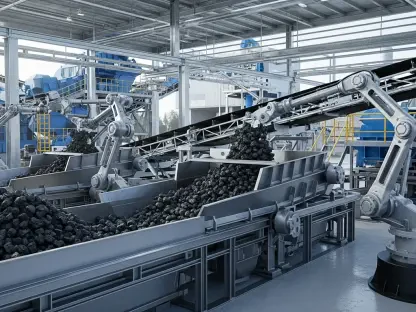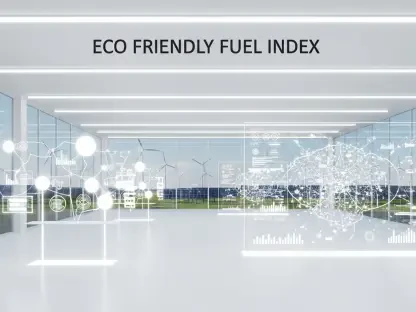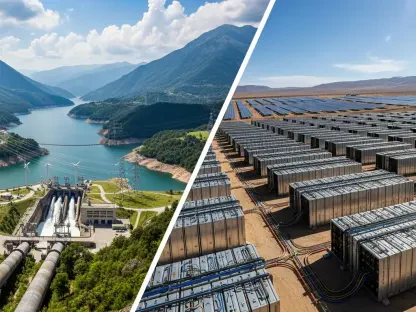I’m thrilled to sit down with Christopher Hailstone, a seasoned expert in international finance and taxation policy, whose deep understanding of global tax frameworks and their implications for developing economies is unparalleled. With a keen focus on how policies shape foreign investment, Christopher offers unique insights into Vietnam’s recent proposal to exempt certain coal power plant operators from a global tax. Today, we’ll explore the motivations behind Vietnam’s decision, the broader impact of the global 15% top-up tax, and what this means for the country’s investment landscape and energy sector. We’ll also delve into the financial trade-offs and potential risks Vietnam faces, as well as how this policy might influence future foreign investment.
How did Vietnam arrive at the decision to exempt coal power plant operators from the global tax, and what specific pressures are driving this move?
Vietnam’s decision to exempt operators like Mitsubishi and Kepco from the global tax stems from a combination of economic and strategic challenges. The country is grappling with power supply issues and a need to maintain a reliable energy sector, which is heavily dependent on coal power plants run by foreign investors. Additionally, Vietnam has been facing external pressures like U.S. duties on exports and a declining appeal as an industrial hub due to higher taxes on big firms. Exempting these operators is seen as a way to stabilize the investment environment and prevent potential disruptions in energy supply, which could further deter foreign capital.
Can you unpack the concept of the global 15% top-up tax and explain why the OECD introduced it in the first place?
The global 15% top-up tax, spearheaded by the OECD, is a landmark policy aimed at curbing tax avoidance by multinational corporations. The idea is simple but powerful: wherever a company’s local tax rate falls below 15%, a top-up levy is applied to ensure they pay at least that minimum globally. It was introduced to level the playing field, stop the race to the bottom with ultra-low tax rates in certain jurisdictions, and ensure that profits are taxed where economic activity occurs. This is meant to prevent companies from shifting profits to tax havens, ultimately protecting national tax bases worldwide.
How does Vietnam’s approach to granting exemptions fit within the broader OECD guidelines, or does it diverge in significant ways?
Vietnam’s proposal to exempt certain coal power plant operators is a bit of a tightrope walk. On one hand, the finance ministry claims it complies with OECD guidelines, likely by arguing that these exemptions are necessary for economic stability and align with provisions for special circumstances. On the other hand, it diverges in spirit because the OECD framework is designed to enforce consistency in tax application. By prioritizing investment incentives over tax collection, Vietnam risks setting a precedent that could undermine the global tax’s effectiveness, though it’s a calculated move to protect its economic interests.
Which companies and specific projects stand to gain from this tax exemption, and why are they so critical to Vietnam?
The exemption targets seven coal power plants with major foreign stakeholders, including Japan’s Mitsubishi, Marubeni, and Sumitomo, South Korea’s Kepco, the U.S.-based AES, and China Southern Power Grid. A key project is the Nghi Son 2 power plant in northern Vietnam, where Kepco and Marubeni are the largest shareholders. These companies are vital to Vietnam’s energy sector because they provide a significant portion of the country’s electricity, which is crucial for industrial growth and sustaining its role as a manufacturing hub for multinationals.
Vietnam is projected to lose around $426 million in tax revenue over two decades due to these exemptions. Can you break down what this figure means in practical terms?
The $426 million loss is an estimate of foregone tax revenue from six of the seven exempted power plants over roughly 20 years, with additional uncalculated losses from the seventh. For context, just the Nghi Son 2 plant could account for nearly $190 million of that by 2047 if taxed under the global levy. This isn’t just a number—it represents funds that could have gone into public services, infrastructure, or debt reduction. For a developing economy like Vietnam, that’s a substantial sacrifice, reflecting how much they’re prioritizing foreign investor confidence over immediate fiscal gains.
What are the potential risks Vietnam faces if it were to enforce the global tax on these projects instead of granting exemptions?
Enforcing the global tax could expose Vietnam to significant risks, primarily in the form of compensation claims from foreign investors. Many of these companies entered Vietnam with agreements for low tax rates or extended tax holidays, and a sudden policy shift could be seen as a breach of those terms. The government fears that the cost of compensating these firms could exceed the tax revenue gained, not to mention the potential damage to Vietnam’s reputation as a reliable destination for foreign direct investment, which is a cornerstone of its economic strategy.
The proposal also seems to open the door for future tax waivers. How might this flexibility shape Vietnam’s relationship with other foreign investors?
By embedding provisions that allow the government to prioritize ‘investment reputation’ over tax collection, Vietnam is signaling a willingness to be flexible with other foreign investors down the line. This could be a double-edged sword. On one hand, it reassures multinationals that their incentives will be protected, potentially attracting more investment. On the other, it risks creating a patchwork of exemptions that could erode the tax base further and make Vietnam overly reliant on foreign capital, potentially at the expense of long-term fiscal stability.
Vietnam has long been a magnet for multinationals with its low tax rates, but how has the introduction of the global tax impacted their operations?
The global 15% top-up tax has definitely shaken things up for multinationals in Vietnam. Companies like Samsung Electronics and Intel, which flocked to Vietnam for generous tax incentives, have faced frustrations over unfulfilled compensation promises tied to the new tax regime. While Vietnam was quick to adopt the tax—estimating it would raise $600 million annually—it’s clear that balancing these new obligations with past commitments has created operational uncertainties for firms, prompting some to reevaluate the predictability of doing business there.
Looking ahead, what is your forecast for how Vietnam’s tax policies might evolve in response to global pressures and its own economic goals?
I think Vietnam will continue to walk a fine line between complying with global tax norms and safeguarding its appeal as an investment destination. We’re likely to see more tailored exemptions or incentives, especially for critical sectors like energy and manufacturing, as the country tries to retain foreign capital while addressing domestic needs like power reliability. However, global pressure from the OECD and other economies might push Vietnam to tighten loopholes over time, possibly shifting towards more transparent but still competitive tax structures. The big question is whether they can sustain growth without over-relying on waivers that could compromise fiscal health in the long run.









